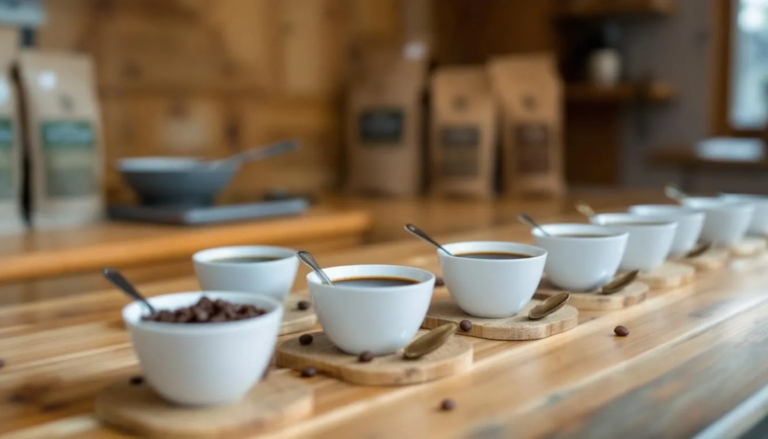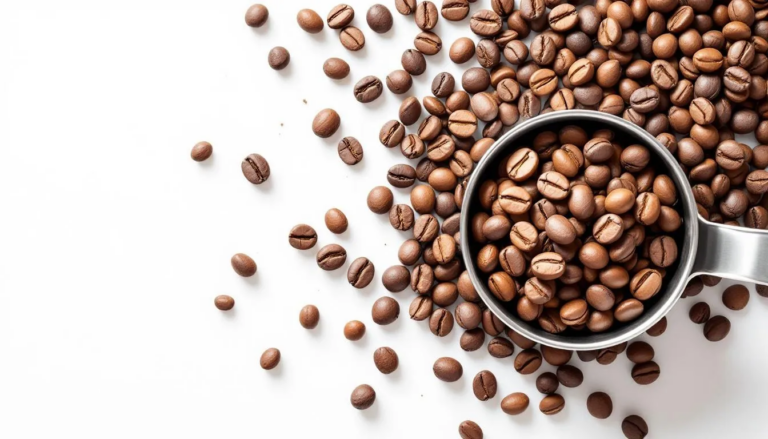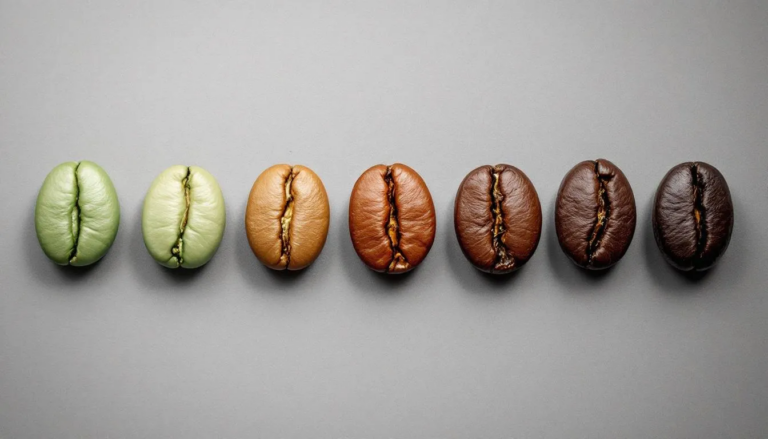Searching for which coffee is the best dark roast? You’re in the right place. Whether you’re a seasoned coffee drinker or just exploring darker brews, this guide will help you find the top dark roast coffees and what makes them stand out.
Flavors, myths and selecting the right origin
Dark coffee is all about bold flavors, with rich notes of caramel, chocolate, and nuts, creating a deeply satisfying cup—perfect for those who like to sip with gusto.
Common myths about french roast are debunked: dark roasts don’t pack more caffeine and aren’t universally bitter. A well-crafted roast can preserve unique characteristics while delivering robust flavors.
Choosing the right dark roast hinges on personal taste—consider beans’ origins, freshness, and brewing methods to unlock the full potential of each cup.
Understanding Dark Roast Coffee
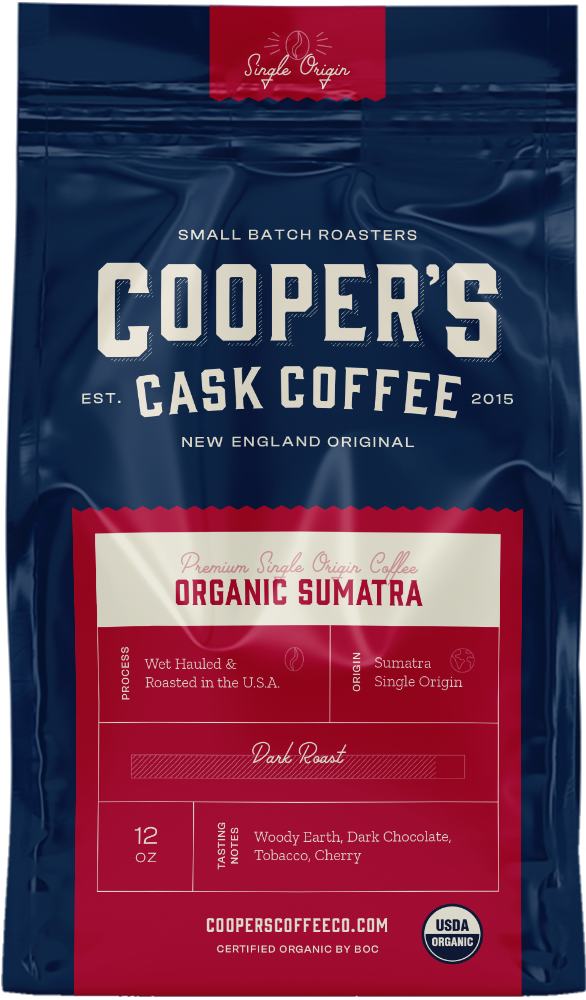
Dark roast coffee is cherished for its bold flavors, distinct aroma, and dark color that tantalizes the senses. This type of coffee is a staple in many espresso and milk-based drinks, offering a robust base that stands up well to milk and sugar. But what exactly makes dark roast coffee so special, and why do coffee drinkers love it so much?
The evolving landscape of coffee roasting highlights current trends and perceptions surrounding dark roasted coffees. Brands like Starbucks and Peet’s are experimenting with lighter options alongside their established dark roasts, blurring the traditional boundaries between the light roast and dark roasts.
To truly appreciate dark roast coffee, understanding what defines it, the unique flavor profiles it offers, and some common misconceptions that surround it is important. Here’s a closer look.
What Defines Dark Roast Coffee
The magic of dark roast coffee begins with the roasting process. Beans are typically roasted until just before the second crack, resulting in a balanced flavor that’s rich and intense. Caramelization of sugars during this process gives dark roast coffee its signature richness. These beans are often shiny with an oily surface and have less acidity compared to lighter roasts, making them a favorite for those who prefer a smoother cup of joe.
The origin of the coffee beans also plays a significant role in their flavor profile. Environmental factors like soil quality, altitude, and climate can greatly influence the taste of the beans. For example, Kenyan dark roasts are known for their bright acidity and deep flavors, providing a unique contrast to their darker tones. The nuanced characteristics and quality of darker roasts can offer complex tastes that challenge common perceptions of smokiness and bitterness often associated with them.
Flavor Profile of Dark Roasts
Dark roast coffees are celebrated for their distinct flavor notes, often featuring hints of caramel, chocolate, and nuts. These flavors contribute to an earthy and robust taste that many dark roast lovers find irresistible. High-quality dark roasts can also showcase more complex notes like spices and even a subtle sweetness, enhancing the overall drinking experience.
For those who appreciate a strong, bold cup, dark roast coffee offers a depth of flavor that’s hard to beat. Unlike light roasts, which emphasize the bean’s inherent characteristics, dark roasts focus more on flavors developed during the roasting process, resulting in a richer, more intense brew.
Common Misconceptions About Dark Roast
A common misconception about dark roast coffee is that it contains more caffeine than lighter roasts. In reality, longer roasting times reduce the caffeine content of darker roast it. Another myth is that all dark roasts are inherently bitter. While dark roasts can have pronounced bitterness, this is not a universal trait and depends significantly on the quality and roasting process.
Some believe that dark roasting diminishes the unique flavors of specialty coffee beans. While darker roasting can mask certain delicate notes, a well-executed dark roast can still highlight the rich, inherent flavors of high-quality beans.
Top Dark Roast Coffee Beans
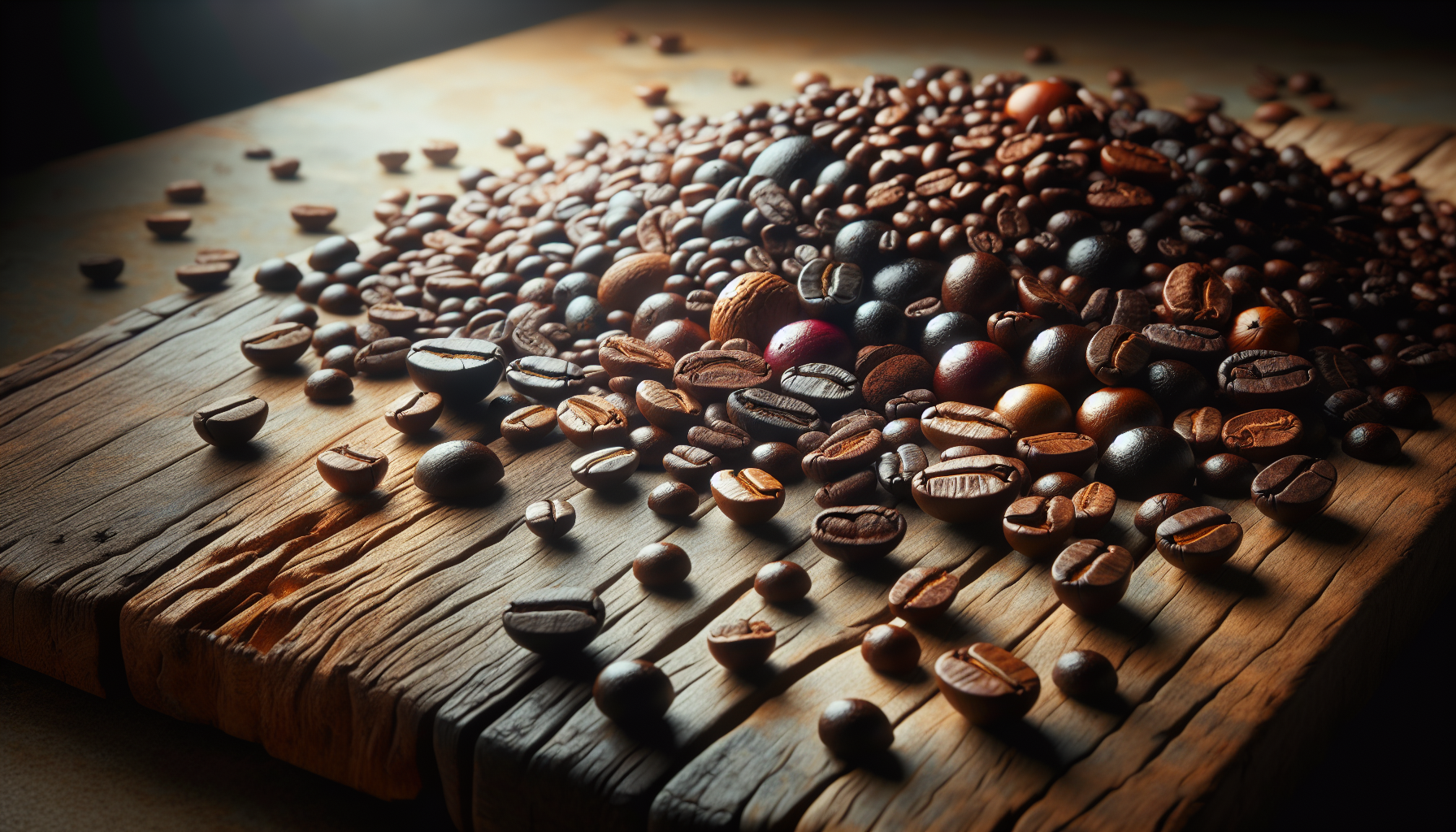
With a solid understanding of dark roast coffee, let’s explore some of the best dark roast coffee beans available. The secret to an exceptional dark roast lies in selecting high-quality beans and the roaster’s skill.
Here, we’ll explore three top contenders that stand out for their unique flavors and overall quality.
Colombian Supremo
Colombian Supremo coffee is renowned for its smooth and rich taste, making it a versatile choice for coffee drinkers. With a smooth body and balanced acidity, it appeals to a wide range of palates, whether you’re a novice or a seasoned coffee enthusiast. This makes Colombian Supremo an excellent option for those looking to enjoy a high-quality dark roast without overwhelming intensity.
Its versatility and balanced flavor profile ensure that Colombian Supremo coffee can be enjoyed in various brewing methods, making it a staple in many coffee shops and homes alike.
Ethiopian Yirgacheffe
Ethiopian Yirgacheffe coffee is another standout in the world of dark roasts. Known for its robust flavor with mild fruity undertones and a baker’s chocolate finish, this coffee offers a unique and delightful taste experience. Classified as Strictly Hard Bean (SHB) or Strictly High Grown (SHG), Yirgacheffe beans are grown at high altitudes, ensuring they are of the highest quality.
Coffee enthusiasts often seek out Ethiopian Yirgacheffe for its distinctive flavor profile and high ratings, making it a favorite among those who appreciate a complex and refined dark roast coffee.
Sumatra Mandheling
Sumatra Mandheling coffee is celebrated for its low acidity and rich aroma of toasted almonds and chocolate. This dark roast offers a smooth, full, medium-bodied experience that coffee drinkers find deeply satisfying. The unique wet-hulling process used in Sumatra enhances the depth and texture of the coffee, contributing to its remarkable flavor profile.
Dark-roasted Sumatra Mandheling is perfect for those who enjoy a coffee with a robust and earthy taste, making it a beloved choice among dark roast lovers.
Choosing the Perfect Dark Roast Coffee
Selecting the best dark roast coffee is a personal journey that depends on individual preferences and several key factors. Dark roast coffee appeals to those who enjoy a smoother and less acidic flavor compared to other roasts. When choosing your perfect dark roast, consider aspects such as flavor, aroma, body, and roast level.
Let’s delve into the considerations that can help you find the best dark roast coffee for your taste.
Taste Preferences
Your personal taste preferences play a critical role in selecting dark roast coffee. Dark roast coffee beans are known for their bold and bitter taste, often with a very dark and shiny appearance. The longer roasting times contribute to these bolder and more bitter flavors. Newcomers to dark roast might find Colombian Supremo a good starting point due to its smooth, rich taste that suits various palates.
How you brew your dark roast coffee can significantly impact its flavor. For example, cold brewing can bring out the dark coffee part’s natural sweetness, resulting in a less bitter and more balanced cup.
Freshness and Roast Date
Freshness is paramount for dark roast coffee. Always check the roast date to ensure you’re getting the freshest beans possible. Freshly roasted coffee maintains its flavor and aroma better, providing a superior drinking experience.
Single Origin vs Blends
With dark roast coffee, you can choose between single-origin coffees and blends. Single-origin coffees offer distinct, clear flavor profiles that reflect their specific region, while blends provide a more balanced and complex mix of flavors.
Single-origin coffees often highlight unique tasting notes from their origin, making them a favorite for those who appreciate specific flavor characteristics. Blends, on the other hand, are crafted to provide a harmonious flavor profile, making them an excellent choice for those who enjoy a rich and multifaceted taste experience.
Brewing Methods for Dark Roast Coffee
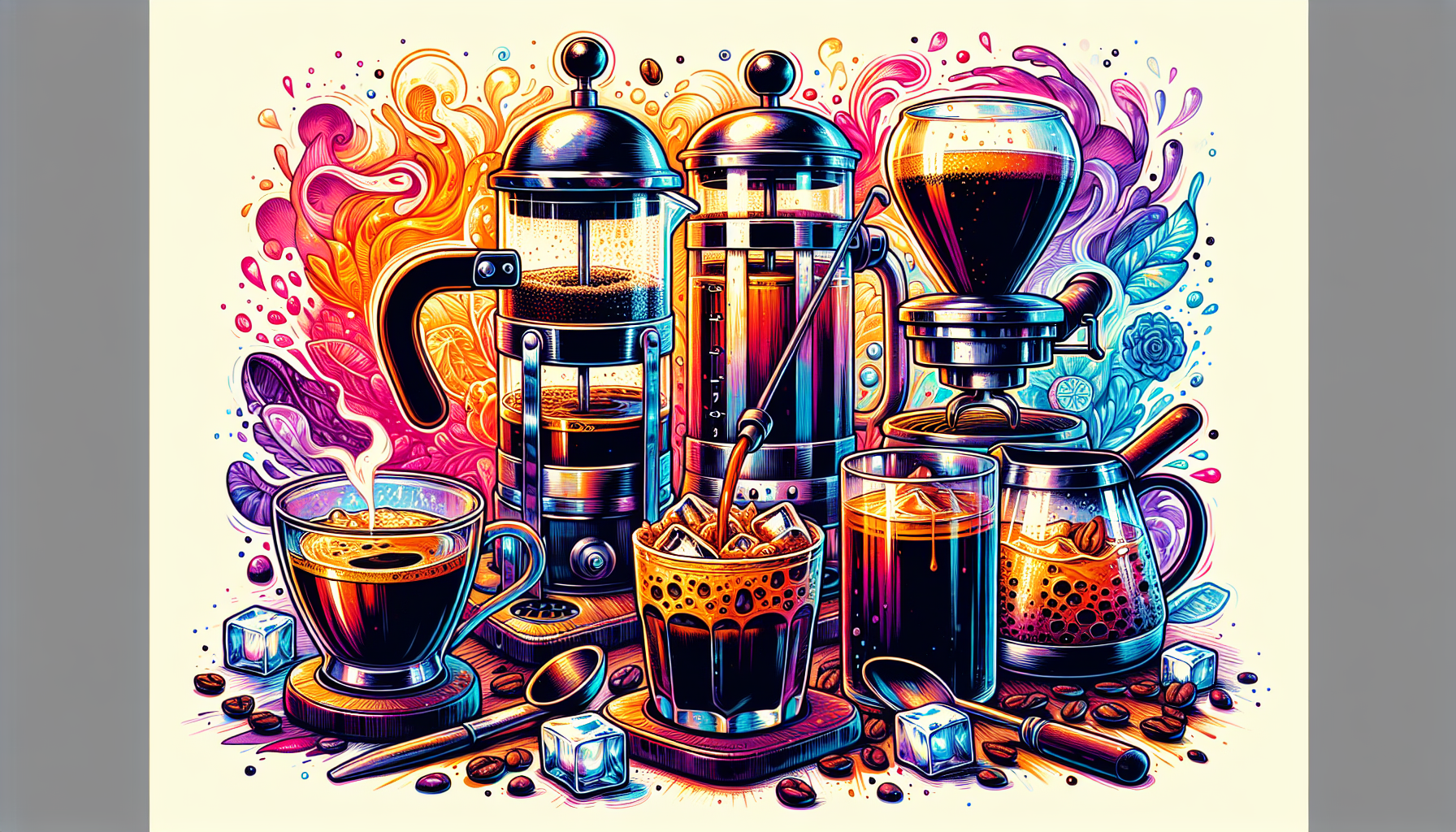
Brewing dark roast coffee requires specific techniques to bring out its best flavors. Different methods can enhance the unique characteristics of dark roast coffee, making each cup a delightful experience.
Let’s explore some of the best brewing methods for dark roast coffee.
Espresso Machines
Espresso machines are a favorite among dark espresso roast lovers because they quickly extract flavors due to the high solubility of dark roast beans. The bold and rich flavors of dark roast beans complement the high-pressure extraction, resulting in a full-bodied shot of espresso roast with minimal acidity.
A very fine grind size helps achieve the concentrated flavors that make dark roast espresso so enjoyable.
French Press
Using a French press for brewing dark roast coffee allows for fuller extraction, enhancing the heavy body and robust flavor profile that dark roast lovers crave. The coarseness of the grind in a French press can also enhance the mouthfeel, making each sip rich and satisfying.
Cold Brew
Cold brewing dark roast coffee results in a smooth, less acidic beverage perfect for hot summer days or any time you want a light, refreshing coffee drink. Dark roast beans are ideal for cold brew, yielding a naturally sweeter and more balanced flavor.
Specialty Coffees and Dark Roasting
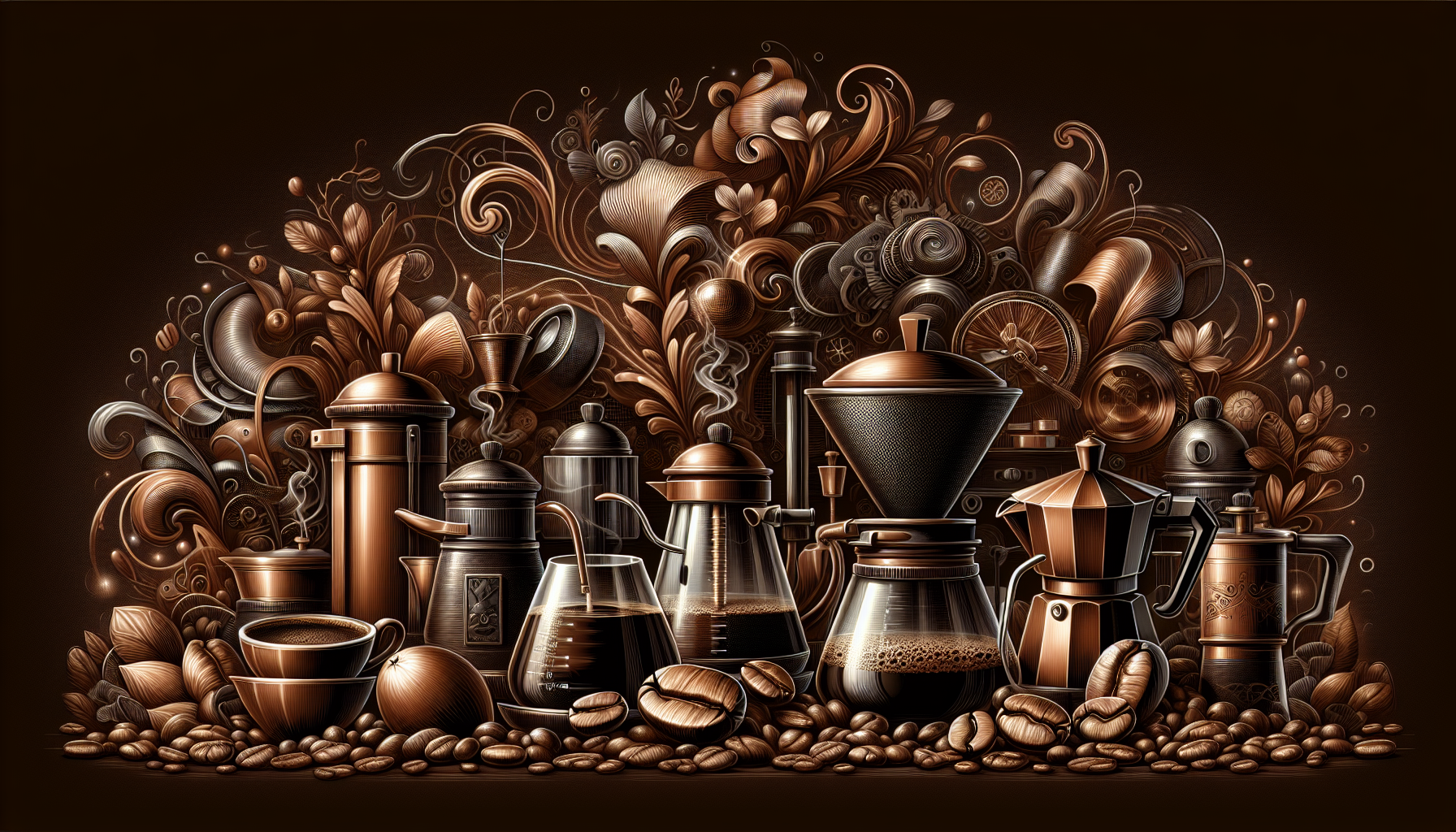
Specialty dark roast coffees can provide complex flavors without the bitterness common in over-roasted beans. Achieving just the right amount of balance in dark roasting is crucial to maintaining the unique qualities of specialty coffee.
Let’s delve into the differences between Arabica and Robusta beans and the importance of high-quality beans for dark roasts.
Arabica vs Robusta
Arabica beans are renowned for their smooth, sweet flavor with fruity and sugary notes, making them a popular choice for specialty dark roasts. In contrast, Robusta beans are bolder, more bitter, and possess earthy and nutty characteristics. They contain more caffeine and less sugar, making them a robust option for those who prefer a stronger cup.
High-Quality Beans for Dark Roasts
Choosing high-quality coffee bean is essential for an exceptional dark roast. Strong-flavored varieties, like Caturra Chiroso, maintain their unique characteristics even after dark roasting, providing a rich and satisfying coffee experience.
Investing in premium beans can significantly enhance the flavor and overall enjoyment of your dark roast coffee.
The Role of Origin in Dark Roast Coffee
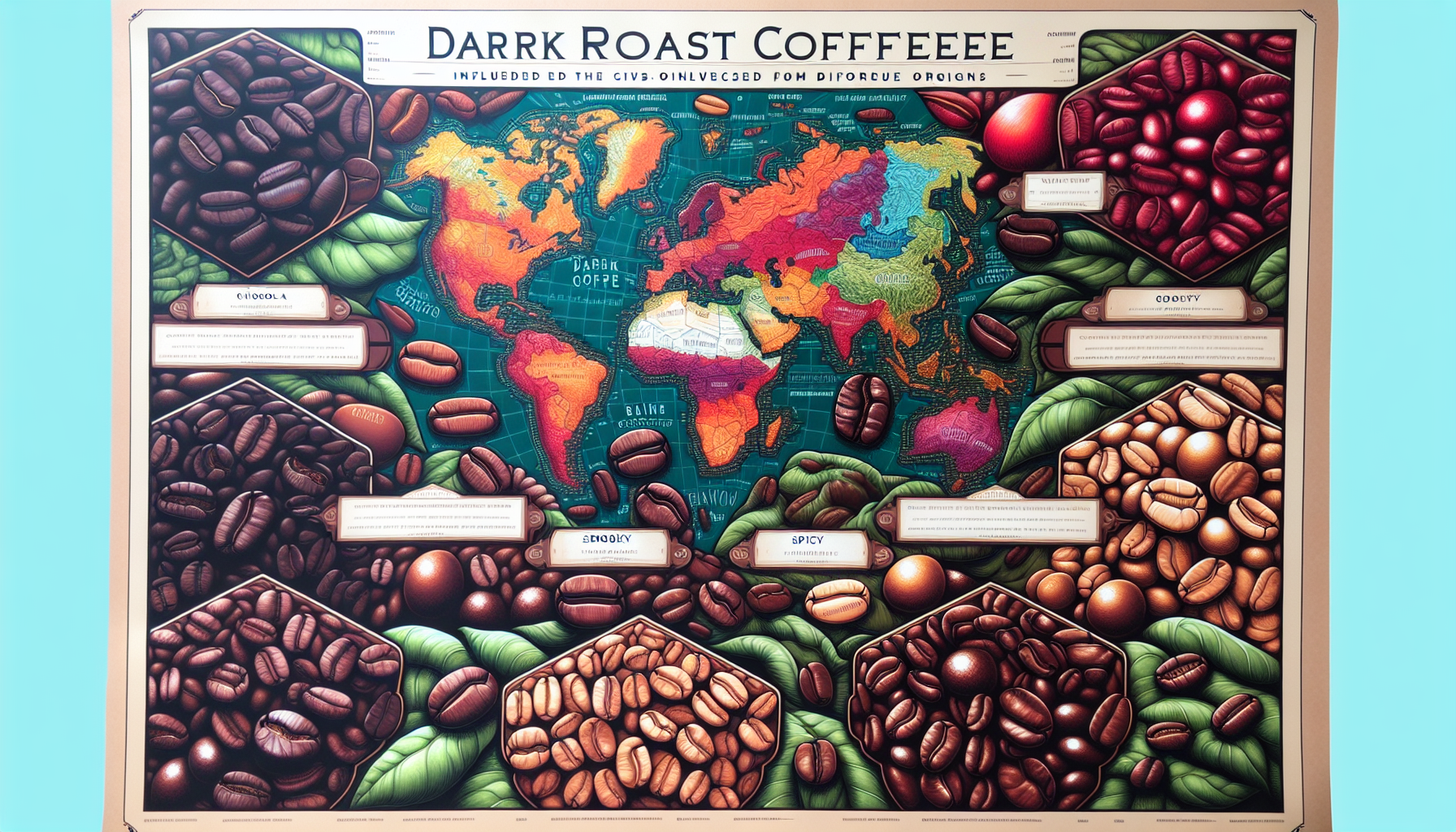
The origin of the roasted coffee beans plays a pivotal role in determining the flavor profile of dark roast coffee. High-quality specialty roasted coffee beans can retain their distinct flavors even after dark roasting. The sensory features of dark roasted coffee, such as a richly pungent, charred cedar character, chocolate, and raisiny fruit, are heavily influenced by the geographical origin of the beans.
Let’s explore specific examples from Kenya and Sumatra.
Kenyan Dark Roasts
Kenyan dark and medium roast, coffees are renowned for their bright acidity, complex flavors, and dense, tough beans, which provide a strong aromatic character. The SL34 coffee variety, originally selected in Kenya, is famous for its robust and vibrant flavors, making Kenyan dark roasts a standout choice for coffee enthusiasts.
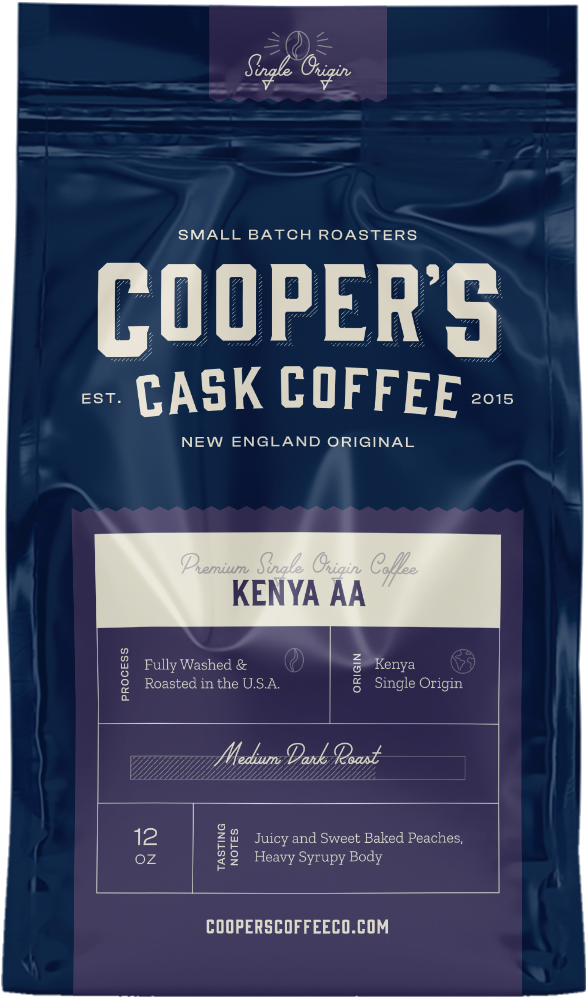
Sumatran Dark Roasts
Sumatran dark roast coffees are known for their distinct earthy and spicy notes, a result of the unique wet-hulling procedures used during processing. This process gives Sumatran beans their characteristic toughness and deep, rich flavor profile, making them a favorite among dark roast lovers who appreciate a robust and full-bodied coffee.
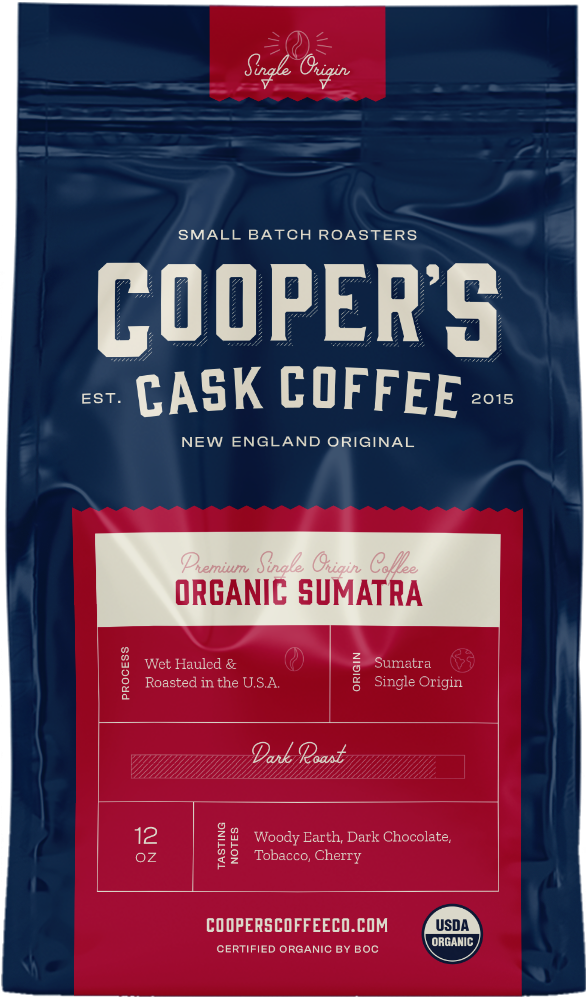
Let’s not for get about the go to, Colombian Dark Roast. This is the typical go to coffee you will find blended with other origins. Cooper’s using a grade 1 Colombian Single origin and it’s pretty fantastic.
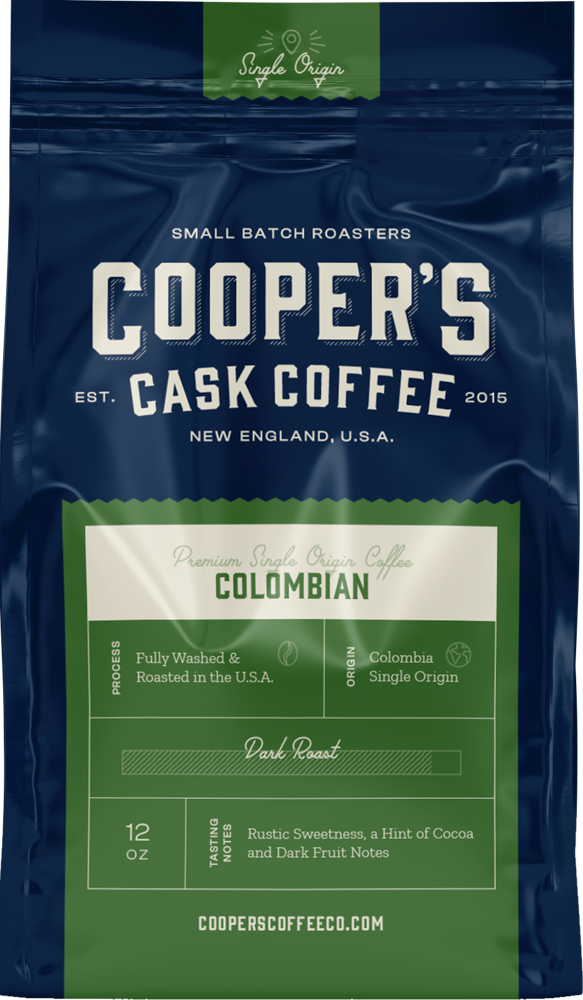
To sum it up
Americans love their dark roast coffee, and picking the right origin is crucial. Test various origins and brewing methods to find what works best for you.
Whether you prefer a bright and complex Kenyan coffee or a deep and earthy Sumatran brew, the key is to enjoy the rich, bold flavors that dark roast coffee has to offer.
Summary
In summary, the best dark roast coffee comes down to personal preference and understanding the nuances of different beans and brewing methods. From the smooth and versatile Colombian Supremo to the distinctive Ethiopian Yirgacheffe and the robust Sumatra Mandheling, there’s a dark roast coffee out there for every palate. Experiment, enjoy, and savor the rich world of dark roast coffee.
Frequently Asked Questions
Does dark roast coffee have more caffeine than light roast?
Surprise! Dark roast coffee has less caffeine than light roast because it’s roasted longer. So, if you’re looking for a jolt, stick with the lighter stuff!
What are the best brewing methods for dark roast coffee?
If you want to unlock the rich, bold flavors of dark roast coffee, go with an espresso machine, French press, or cold brew. Each method is a fantastic way to indulge in a delicious cup of coffee that’ll keep you buzzing!
Why does my dark roast coffee taste bitter?
If your dark roast coffee tastes bitter, it might be due to the quality of the beans or the roasting process—just like a bad breakup, sometimes it’s not you, it’s the roast! So next time, choose wisely!
What is the difference between single-origin and blended dark roast coffee?
Single-origin coffee is like enjoying a solo performance from a specific region with a unique flavor, while blended dark roast is more like a collaborative jam session that balances a variety of notes. Choose your vibe: solo artist or harmonious ensemble!
How important is freshness when it comes to dark roast coffee?
Freshness is everything for dark roast coffee—like a binge-worthy show that loses its charm after a few months! Check the roast date to ensure those beans are as vibrant as your morning routine.
